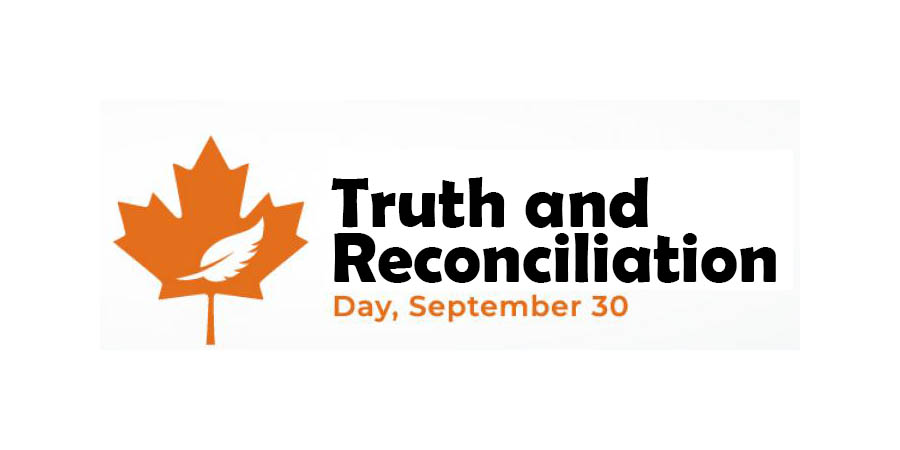September 13, 2021
Dear Sisters and Brothers in Christ,
The federal government recently passed legislation to create the annual National Day for Truth and Reconciliation (NDTR), a federal statutory holiday on Sept. 30. This was done in response to one of the 94 Calls to Action from the Truth and Reconciliation Commission, which states:
We call upon the federal government, in collaboration with Aboriginal peoples, to establish, as a statutory holiday, a National Day for Truth and Reconciliation to honour Survivors, their families, and communities, and ensure that public commemoration of the history and legacy of residential schools remains a vital component of the reconciliation process. (TRC Call to Action, 81)
This day provides an opportunity for all Canadians to recognize and commemorate the legacy of residential schools, and commit to working for truth and reconciliation in the relationship between Indigenous and non-Indigenous peoples in Canada.
Acknowledging the particular association that exists between our Catholic Church and the Indian Residential Schools, the Archdiocese will also recognize this day as a statutory holiday.
Unlike other holidays, the NDTR is not just a day off from work. Instead it is very much a day when we encourage our whole Catholic community to take up the work of prayer and reflection, of learning and listening, of reaching out and reaching forward toward a new relationship of healing and reconciliation with Indigenous peoples of this land.
The opportunity set before us – with this new national holiday – is to renew and strengthen relationships, by recognizing and affirming the individual and collective dignity of Indigenous Peoples while affirming our commitment to love and respect each other as members of the same human family. In other words, it is to resolve to live by Christ’s example of loving each other as he loved us.
There is much work to do, as a Church and as individuals, to spread the message of the Gospel and of healing and reconciliation from the troubled past and into a future in which all Canadians – regardless of background and history – can stand together.
What can we do on this day? Here are a few suggestions:
- On Sept. 30, 7 PM, I shall celebrate a public Mass of Reconciliation at St. Joseph’s Basilica. The day before, at noon on Sept. 29, I shall celebrate Mass with the same intention for all archdiocesan and parish staff. Both of these will be livestreamed by the Archdiocese communications office. Intercessions at both Masses will reflect our desire for healing and reconciliation, and the Masses themselves will be offered for the Indigenous peoples of Canada. All parishes are encouraged to celebrate similar Masses of Reconciliation on Sept. 30.
- Read the 94 TRC Calls to Action, especially those that pertain specifically to the churches: nos. 48, 58-61, and 73-75.
- Become informed about the Church’s involvement in residential schools by reading our Frequently Asked Questions page.
- Watch and share the webinar series, Healing and Reconciliation Part 1 and Part 2, which provides a brief outline of the Church’s history involvement in residential schools, the Truth and Reconciliation Commission and the long road towards healing and reconciliation. This series was a collaboration between the Archdioceses of Toronto and Edmonton and features Indigenous Deacon and Lawyer John Brown, Cardinal Thomas Collins, Neil McCarthy (Communications Director for Toronto Archdiocese) and myself.
- Watch and share my statement with Chief Wilton Littlechild of Maskwacis in the wake of the Kamloops Residential School discovery. Chief Littlechild is one of the three National Commissioners of the Truth and Reconciliation Commission.
- Learn about the treaty area where you live and the responsibilities that reside for all of us in honouring treaty relationships.
- Discover the many resources and initiatives undertaken by the Canadian Catholic Indigenous Council, Our Lady of Guadalupe Circle and the Canadian Conference of Catholic Bishops.
- Study the United Nations Declaration on the Rights of Indigenous Peoples and our Church’s support to implement UNDRIP in Canadian Law.
- Support Sacred Heart Church of the First Peoples, the national indigenous parish in Edmonton, in their efforts to rebuild after a devastating fire.
- Attend a school or community event to mark National Day for Truth and Reconciliation.
Let us embrace the spirit of this new national holiday and truly live our way into new relationships of truth, reconciliation, love and respect.
Yours sincerely in Christ,
✠Richard W. Smith
Archbishop of Edmonton
- Read Archbishop Smith’s Letter (PDF, 2 pages)

